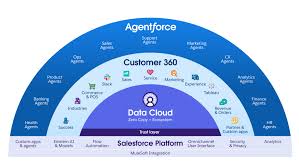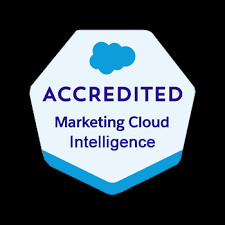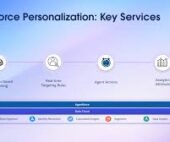Salesforce has announced several major updates to its Data Cloud at the annual Dreamforce conference, aimed at enhancing data analysis and boosting the capabilities of its new AI agents, Agentforce. These updates include support for unstructured data in audio and video formats, 50 new data connectors, and a low-latency pipeline to ensure faster AI responses.
Salesforce describes Data Cloud as a customer data platform designed to unify data from various sources, providing actionable insights for sales, service, and marketing teams. The latest features will further improve this functionality, according to Rahul Auradkar, Salesforce’s General Manager of Unified Data Services and Einstein.
Key Updates
1. Unstructured Data Support: Audio and Video Formats
Salesforce has introduced the ability to process unstructured audio and video data. This allows enterprises to analyze information from sources like customer calls, training sessions, product demos, and webinars. The unstructured data can enrich customer profiles, provide deeper insights into behavior, and enhance the performance of AI agents within Agentforce by improving response accuracy.
IDC’s Hayley Sutherland highlighted that vectorization of this content enables retrieval-augmented generation (RAG), enhancing the use of large language models (LLMs) to generate more effective and context-aware responses.
2. 50 New Data Connectors
Salesforce has expanded its connector library with 50 new options, raising the total to 200. This helps businesses integrate diverse data sources, facilitating improved personalization and decision-making. These connectors are also critical for feeding data to AI agents, enabling them to generate more accurate insights.
3. Sub-second Data Layer for Real-time Responses
A new sub-second data layer has been rolled out, allowing enterprises to ingest, unify, analyze, and act on data in real time. This layer powers Einstein Personalization, enabling instant AI-driven recommendations and analytics. It’s especially important for the low-latency needs of Agentforce’s autonomous AI agents, ensuring faster, more accurate customer interactions.
4. Governance and Security Enhancements
Salesforce has introduced AI tagging and classification features for unstructured data, automating labeling and organization to ensure secure access. Policy-based governance will offer granular control over data access based on tags, metadata, and user attributes. Additionally, customer-managed encryption keys ensure data security, while the newly available private connect feature allows secure data sharing between Data Cloud and public cloud environments.
5. Data Cloud One and Hybrid Search
Data Cloud One, a new feature, will allow enterprises to connect multiple Salesforce accounts across different departments or regions into a single instance, simplifying data management. The hybrid search feature, which combines vector and keyword search, is designed to improve the speed and accuracy of finding industry-specific information.
Other updates include Tableau Semantics, which helps organize data based on its meaning, and a new data community platform to foster collaboration among data professionals.
These updates reflect Salesforce’s commitment to enhancing data-driven decision-making and delivering powerful AI capabilities for enterprises.













